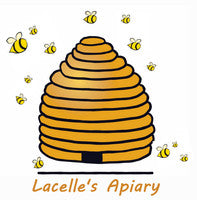News
Do we need to Reverse our brood boxes in spring?
Reversing brood chambers basically means switching the position of the brood boxes so the brood nest is the lowest in the hive. Is it really necessary? Yes, there are times when you have to disrupt the nest, but there many times when you don't have to. For Example: Bees in a hollow tree build brood comb downward. Warre beekeepers, put their new brood boxes under the colony, and the bees fill them up. The misunderstanding comes because all winter long we watch the bees move upward toward the warmest part of the hive, so we start thinking bees always...
Why Did my Honey Bees Die?
I've been getting a few calls about lost colonies this winter. These are some of the common early winter deaths that have been described to me; My hive was big and looked very healthy in the Fall. I noticed a lot honey is left in the top supers. There isn't a lot bees in the hive now, maybe the size of a grapefruit. There are hardly any bees on the bottom board. If you look closely in the cells around the brood, you will see white crystals stuck to the cell walls, looking like someone sprinkled coarse salt in the...
University of Guelph- Honey Bee Research Centre- Beekeeping Videos
These video beekeeping series are to provide new and advanced beekeepers with demonstrations on a variety of topics ranging from how to open a hive to queen rearing. Please see the link below. These videos are great. http://www.uoguelph.ca/honeybee/videos.shtml
Organic Beekeeping Management
The goal of organic management is to maintain healthy and productive honey bee colonies without the use of synthetic treatments or antibiotics. There are parasite and disease control options available for an organic management system. Organic treatments for pest and disease control are often based on natural chemicals or compounds. Formic Acid, oxalic acid and thymol are examples of organic treatments for varroa mites. These treatments, if registered, can be used within an organic beekeeping operation. For more info: www.ontariobee.com/organic www.naturallygrown.org www.organiccouncil.ca www.cog.ca
What You Should Know if if you own bees in Ontario
The Ontario Bees Act is the legislation that regulates honey bees and beekeeping in Ontario. The main purpose of the act is to protect the health of honey bees, particularly from pests and diseases. Anyone who owns or is in possession of honey bees must register annually with the Ontario Ministry of Agriculture, Food and rural Affairs. (OMAFRA). There is no charge for registration. As part of the registration beekeepers are required to identify the location of beeyards and the number of honey bee colonies. Honey Bee Registration: www.omafra.gov.on.ca/english/food/inspection/bees/info_registration.htm
